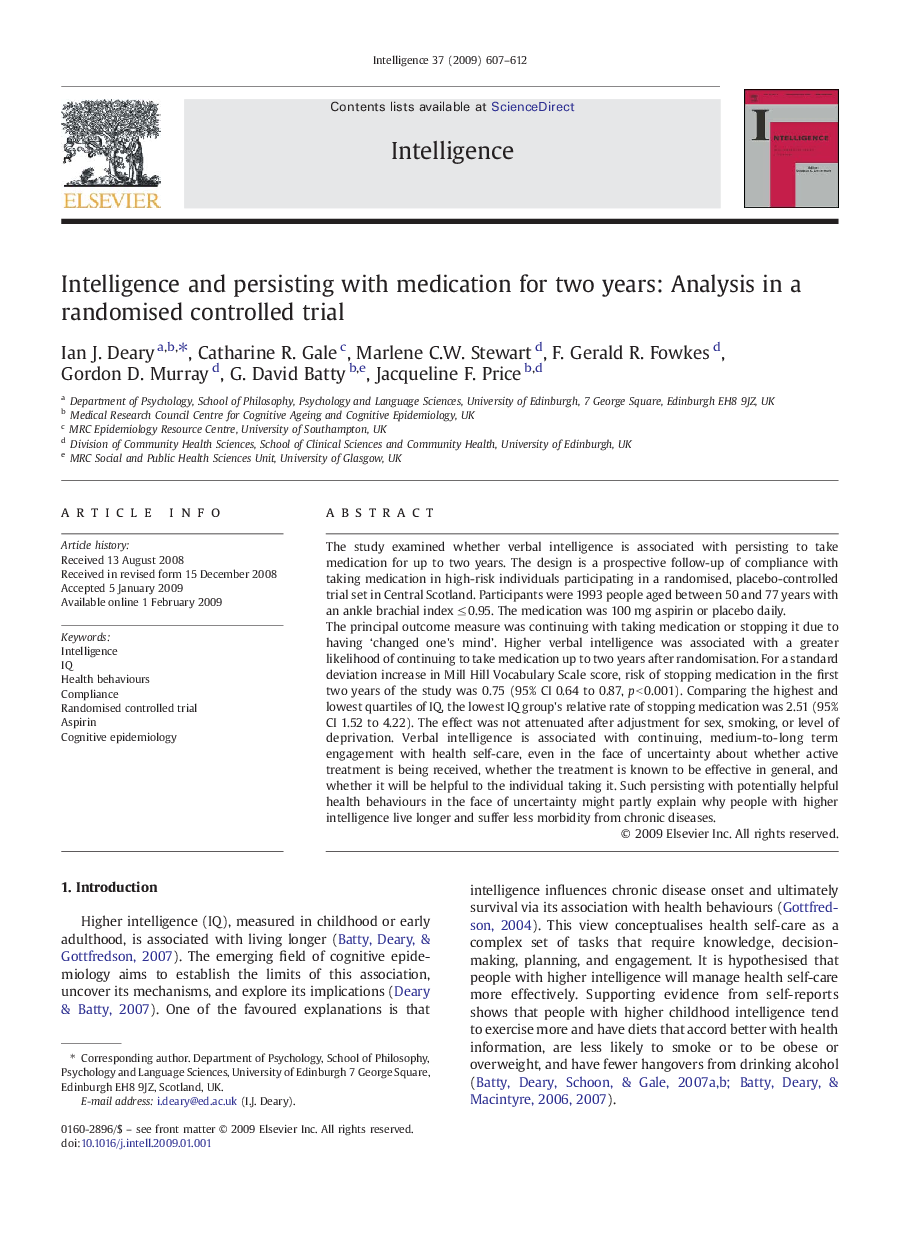| Article ID | Journal | Published Year | Pages | File Type |
|---|---|---|---|---|
| 10459477 | Intelligence | 2009 | 6 Pages |
Abstract
The principal outcome measure was continuing with taking medication or stopping it due to having 'changed one's mind'. Higher verbal intelligence was associated with a greater likelihood of continuing to take medication up to two years after randomisation. For a standard deviation increase in Mill Hill Vocabulary Scale score, risk of stopping medication in the first two years of the study was 0.75 (95% CI 0.64 to 0.87, p < 0.001). Comparing the highest and lowest quartiles of IQ, the lowest IQ group's relative rate of stopping medication was 2.51 (95% CI 1.52 to 4.22). The effect was not attenuated after adjustment for sex, smoking, or level of deprivation. Verbal intelligence is associated with continuing, medium-to-long term engagement with health self-care, even in the face of uncertainty about whether active treatment is being received, whether the treatment is known to be effective in general, and whether it will be helpful to the individual taking it. Such persisting with potentially helpful health behaviours in the face of uncertainty might partly explain why people with higher intelligence live longer and suffer less morbidity from chronic diseases.
Keywords
Related Topics
Social Sciences and Humanities
Psychology
Experimental and Cognitive Psychology
Authors
Ian J. Deary, Catharine R. Gale, Marlene C.W. Stewart, F. Gerald R. Fowkes, Gordon D. Murray, G. David Batty, Jacqueline F. Price,
